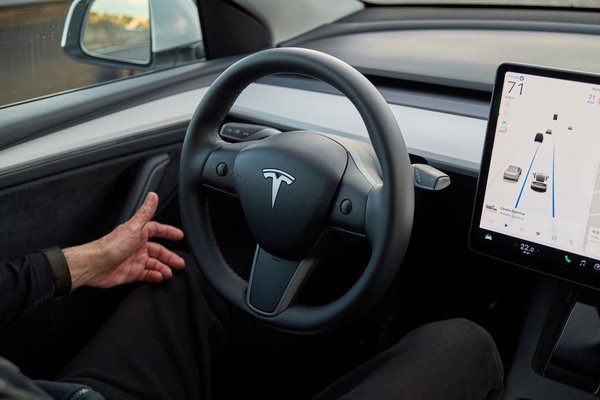Tesla has been racing ahead on its Full Self-Driving promises, but a Miami jury just hit the brakes hard. In a rare courtroom defeat, federal jurors found Tesla partially liable for a 2019 crash in Key Largo, Florida, ruling that the company’s driver-assistance system failed to prevent a deadly collision that killed 22-year-old Naibel Benavides Leon and seriously injured her boyfriend, Dillon Angulo. The two were standing outside their parked SUV when a Model S slammed into them at more than 60 miles per hour.
Suggested Reading
The verdict: $329 million in damages, including a stunning $200 million in punitive damages, largely awarded to Benavides’ family and Angulo. The plaintiffs had been asking for around $345 million, and while the jury stopped short of granting the full amount, the size and scope of the award suggest that jurors viewed Tesla’s conduct as more than a design flaw. The ruling could signal a shift in how courts view the risks of semi-autonomous tech. Juries award punitive damages when they find that a defendant acted with gross negligence, recklessness, willful misconduct, or actual malice.
Related Content
The Tesla, driven by George McGee with Autopilot engaged, ran a stop sign and crashed into the couple after McGee allegedly looked down to retrieve his phone, according to court filings. Tesla argued that McGee was entirely at fault, but jurors ultimately found him 67% responsible — and Tesla 32% responsible.
The plaintiffs sued McGee for negligence, and the case was settled out of court prior to the federal jury trial against Tesla.
This case involving Tesla is the first federal wrongful-death lawsuit by third-party victims against the company involving Autopilot. Jury selection grappled with potential juror bias, partly due to opinions about CEO Elon Musk. Friday’s verdict is a far cry from Tesla’s past courtroom luck — Tesla had never lost a fatal Autopilot case in federal court until now, and the company had defended and won other major trials in recent years — as juries largely cleared the company or placed nearly all fault on human drivers.
Friday’s outcome could be a sign that jurors may be increasingly skeptical of how the company presents its technology to the public. According to Local 10 news, some on Tesla’s side reportedly shook their heads as the verdict was read.
At the heart of the lawsuit was the claim that Tesla deceptively marketed Autopilot as more capable than it actually was, encouraging drivers to put too much trust in what is, legally, still a driver-assist feature, not a self-driving system. While Tesla had tried to end the lawsuit, U.S. District Judge Beth Bloom allowed the suit to proceed on design‑defect and failure‑to‑warn claims after dismissing other allegations — a decision that could set precedent in ADAS (Advanced Driver-Assistance Systems) liability cases.
Plaintiffs’ counsel introduced forensic testimony and internal data indicating that Tesla knew McGee routinely overrode Autopilot safety features; McGee admitted to feeling “too comfortable” relying on the system during his long commute. Attorneys claimed Tesla initially withheld critical pre-crash data and video, which was later recovered by experts.
The ruling comes at a moment of mounting regulatory scrutiny for Tesla: The company is under multiple investigations by the NHTSA and the Department of Justice over how it promotes its Autopilot and Full Self-Driving. Friday’s verdict could embolden future lawsuits and raise fresh questions about the legal exposure automakers face as they push semi-autonomous systems closer to the edge of autonomy.
The verdict could also open the door for more plaintiffs to challenge Tesla in court, especially as similar Autopilot-related crashes move through the legal system in California and Texas. The outcome underscores a shifting dynamic in tech-driven liability: When cars can assist in driving, the question of “Who’s responsible?” is no longer quite so simple.
For Tesla, the stakes extend far beyond one crash. The verdict highlights growing concerns about how automation is marketed, misunderstood, and monitored — and puts added pressure on the automaker as it pushes forward with plans for a fully driverless future. This time, the company may not be able to accelerate past the consequences.

